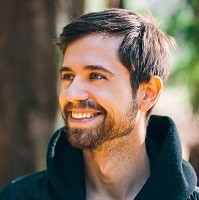
“Map is not the territory, modern humans spend their lives eating the menu rather than the meal.“ ~ Alfred Korzybski of General Semantics
The intention of this article is to explore how we have been conditioned to think in limited ways, so that we can, instead, experience the world actually as it is, rather than how we think it is.
Instead of seeing something such as oolong tea as what it is, we are conditioned by media and marketing to view the tea from our filter system that applies what we have experienced before, or what we think we know about oolong tea. We ignore the subtle differences in each individual cup of tea and automatically tell ourselves that the tea is what our filter system says it is.
When we hear a statement such as, “God is an artificial construct applied to fill in the gaps and holes in the human psyche,” there is most likely an immediate emotional response whether you agree or disagree with the statement.
Immediately people will try to apply their filter system to the statement and categorize the viewpoint into atheism, agnosticism, and so on. The theists will apply their filter system in their own way, as will the non-theist. Both of these systematic applications to the statement prevent us from being able to honestly consider the statement for ourselves and to assess the nuances of truth it may or may not offer.
The need to categorize everything so that we can feel comfortable with the statement on our own terms is highly reactionary behavior that almost all of us are guilty of partaking in—since it is simply human nature and most likely based on our survival mechanisms and software which are highly outdated and were wired to prevent us from being eaten or attacked by saber-toothed tigers. This software system does not take into account the philosophical and intellectual pursuits of the modern world, nor that new knowledge or considering differing perspectives does not threaten our survival or sense of well being.
We apply stories, past experiences, and what limited knowledge we have to a subject, entirely dissolving our ability to experience it in its own truth within that moment. A baby places no judgment on things. It is experiencing everything for the first time—there is no bias, no preconceived notions, no expectation in the experience. It can entirely, honestly, and authentically experience the subject for what it is. The baby experiences clarity in its interpretation of the present experience.
Another example is jumping in the ocean for the first time. Someone who jumps in the ocean for the first time is going to have different ideas than someone who jumps in the ocean and also watches lots of shark movies and nature specials on sharks. Their experience of the ocean will be entirely different. Likewise, someone who has had close family members drown in the ocean or has almost drowned himself or herself will also experience the ocean differently than someone who hadn’t. The ocean itself does not change based on our preconceived notions and experience of it, yet it is experienced entirely differently by people with differing experiences with it.
From the above two examples we can see how our conditioning limits us from the natural flow of experience which taints or applies a lens to how we perceive new information and phenomenon in the world.
One way to override this innate conditioning within our psyche is to let go of what we think we know, to become comfortable with not knowing, to also be open to new perspectives coming in and being conscious of our initial reaction to them. We can learn to identify, be mindful of, and become aware of how our previous conditionings are affecting our feelings toward a new experience.
Perhaps we will never be entirely free of removing our conditioned biases but the intention to strive for this is an intention to move toward a more conscious experience and to learn how to be more honest with ourselves.
~
Author: Brandon Gilbert
Image: Flickr/Mickael
Editor: Travis May






Read 0 comments and reply